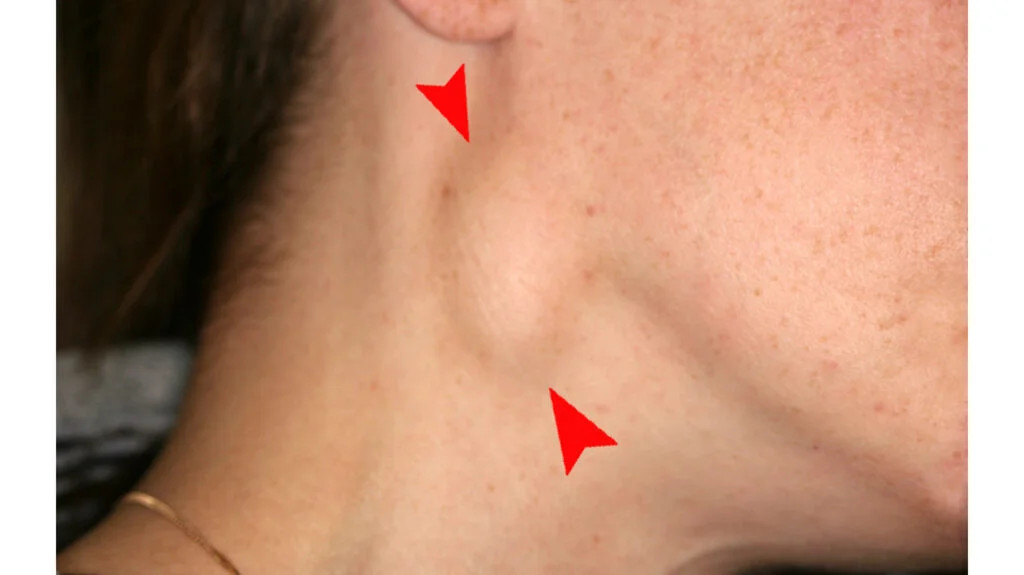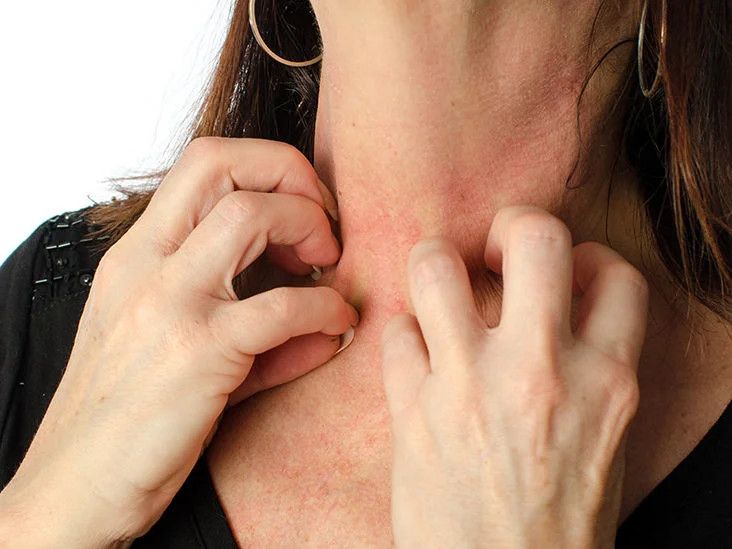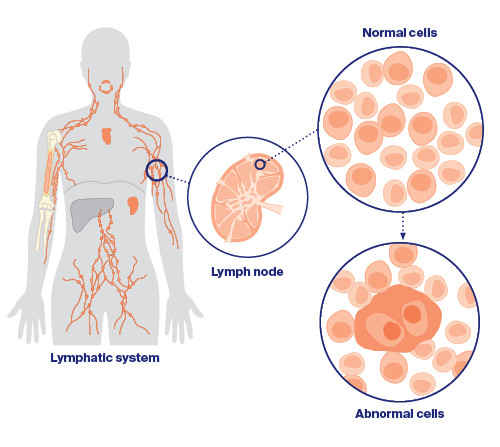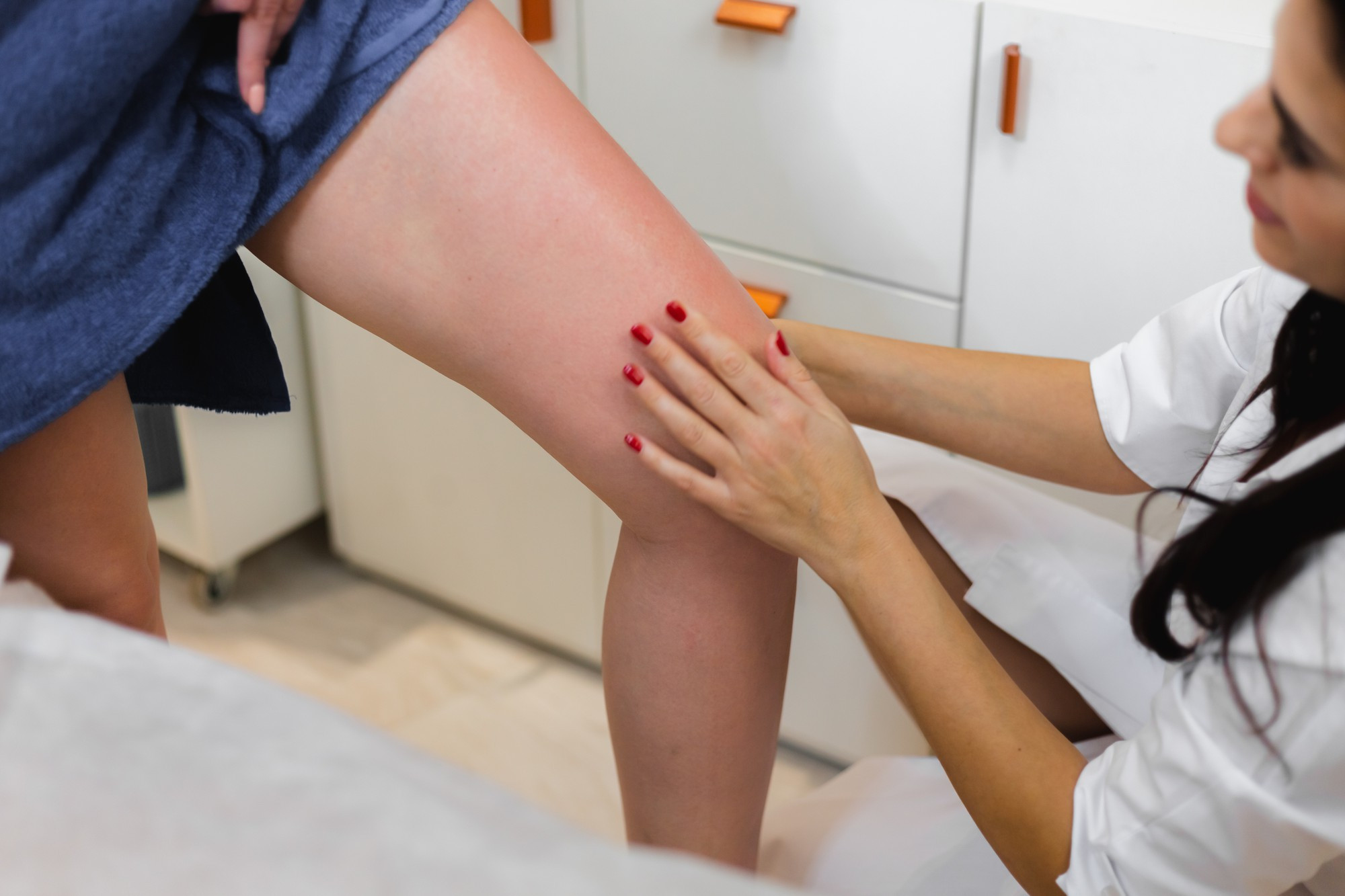Definition
Lymphadenopathy colli refers to the enlargement of lymph nodes in the neck, typically measuring more than 1 cm. Normally, the lymph nodes in the neck are small and not easily palpable unless there is an underlying infection or inflammation causing them to swell.
Lymph nodes are a crucial part of the lymphatic system, which is vital to the body's immune response. The lymphatic system consists of numerous lymph nodes and lymphatic vessels and functions to:
- Protect the body from pathogens and microbes.
- Maintain the balance of body fluids.
- Facilitate the adequate absorption of nutrients.
The lymphatic system plays a crucial role in defending the body against pathogens. When necessary, it sends white blood cells called lymphocytes to combat microbes that could cause illness. However, excessive production of white blood cells by lymph nodes can lead to swelling.
Swelling of lymph nodes in the neck typically occurs without pain. However, in some instances, enlarged lymph nodes may be tender to the touch or cause discomfort. Lymph nodes can feel firm or rubbery, and their mobility may vary—some may be movable, while others are immovable.
Causes
Lymphadenopathy colli and lymphadenitis colli share similarities and can often be confused with each other. Lymphadenitis colli specifically refers to an infection in the lymph nodes in the neck, typically caused by bacteria or viruses. For instance, Mycobacterium tuberculosis can lead to tuberculous lymphadenitis, while cat scratch disease is caused by the bacterium Bartonella henselae, which affects the lymph nodes in the neck.
Cat scratch disease is lymphadenitis caused by a bacterium called Bartonella henselae, which spreads to the lymph nodes in the neck.
On the other hand, lymphadenopathy colli primarily involves the inflammatory process occurring in the neck and surrounding sinuses. This condition can occur when your body is combating infections such as:
- Throat infections
- Upper respiratory tract infections (URTI)
- Dental infections
- Ear infections
- Bronchitis (lower respiratory tract infection)
- Scalp infections
- Eye infections
Infections in or around the neck often trigger swelling of the neck lymph nodes because lymphadenopathy tends to occur in one area of the lymph nodes at a time. Infections near the ears are filtered through the neck lymph nodes, leading to swelling.
Additionally, several cancers affecting the head and neck can also cause lymphadenopathy colli. These cancers include:
- Skin cancer and other soft tissue cancers
- Nasal cancer
- Sinus cancer
- Oral cancer
- Throat cancer
- Vocal cord cancer
- Salivary gland cancer
- Thyroid gland cancer
Risk factor
Common risk factors for lymphadenopathy include environmental factors, genetics, and viruses. Other contributing factors may include:
- High-risk sexual behavior
- Injected drug misuse
- Local soft tissue infections
- Upper respiratory tract infections
- Blood transfusions
- Consumption of undercooked meat
Symptoms
Lymphadenopathy colli is common in children, and it may be more noticeable in them than in adults due to their smaller and more prominent lymph nodes when inflamed.
The symptoms of lymphadenopathy colli in both adults and children are similar and may include:
- Lump under the jaw, or on the side or back of the neck
- Other lumps may appear in the armpits, groin creases, chest, or abdomen
- Pain or discomfort around the affected lymph nodes
- Redness or warmth of the skin when touched
- Fever
- Sore throat
- Stuffy nose
- Cough
- Rash
- Loss of appetite
- Muscle pain
- Headache
- Fatigue
- Unexplained weight loss
These symptoms can also occur in various other health conditions, so you should consult a doctor if you experience them.
Diagnosis
The initial step in diagnosing lymphadenopathy colli involves a comprehensive physical examination by a doctor. They may inquire about your symptoms and medical history, focusing on any history of infection in the sinuses, neck area (including the throat, ears, salivary glands, and skin).
If further confirmation is needed, the doctor may recommend imaging examinations of the neck, such as ultrasound, CT scans, or MRI. The choice of examination depends on the doctor's findings during the physical examination and questioning.
Lymphadenopathy colli itself is not a disease but often a sign of an underlying health condition causing infection or inflammation. Based on all your symptoms, the doctor will determine whether additional examinations are necessary to establish a specific diagnosis.
If the lymphadenopathy colli is confined to one area, it may not require further examination. However, if the infection and inflammation lead to weight loss, fatigue, fever, or night sweats, there may be underlying serious conditions, such as cancer, tuberculosis, infectious mononucleosis, or HIV/AIDS. Each of these conditions requires specific laboratory tests and radiological examinations. Sometimes, a lymph node biopsy may be recommended for further diagnosis.
Management
The treatment of lymphadenopathy colli depends on the underlying cause of the lymph node swelling. In many cases, lymphadenopathy colli improves on its own once the underlying cause is addressed. If the swelling is due to an infection, antimicrobial or antibiotic medications and antiviral drugs may be prescribed. Autoimmune conditions may require anti-inflammatory drugs or other specific therapies.
Warm compresses applied to swollen lymph nodes can help alleviate discomfort.
In some severe cases, if the lymph nodes are significantly damaged or causing complications, they may need to be surgically removed. However, this is typically considered only as a last resort, and your doctor will carefully assess your condition before recommending such a procedure.
Complications
While lymphadenopathy itself rarely causes complications, untreated lymphadenopathy can exacerbate the underlying condition. The most concerning complication is the potential for the spread of infection or cancer.
In cases of lymphadenopathy associated with autoimmune diseases, untreated and progressive autoimmune diseases can increase the risk of developing cancer or immune disorders, which can lead to significant morbidity or mortality.
Prevention
Maintaining a healthy diet and engaging in regular exercise are essential for improving overall health and reducing the risk of conditions that can lead to lymph node swelling. It's important to discuss lifestyle changes you can make with your doctor to enhance your health and prevent lymphadenopathy colli in the future.
When to see a doctor?
While lymphadenopathy colli rarely indicates a serious condition, it's crucial to seek medical attention if you experience the following symptoms:
- Prolonged pain
- Swelling that persists for more than one week
- Fever
- Unexplained weight loss
These symptoms may signal underlying conditions that require immediate medical attention, such as
- Tuberculosis
- Syphilis
- HIV/AIDS
- Lymphoma
- Some types of leukemia
Looking for more information about other diseases? Click here!
- dr. Monica Salim
Cervical lymphadenopathy: How does it impact your health? (2021) WebMD. WebMD. Available at: https://www.webmd.com/a-to-z-guides/what-is-cervical-lymphadenopathy (Accessed: April 21, 2023).
Snyder, A. (2018) Swollen cervical lymph nodes: Causes and treatment, Healthline. Healthline Media. Available at: https://www.healthline.com/health/swollen-cervical-lymph-nodes#treatment (Accessed: April 21, 2023).
Lymphadenopathy - StatPearls - NCBI Bookshelf (2022). Available at: https://www.ncbi.nlm.nih.gov/books/NBK558918/ (Accessed: April 21, 2023).











